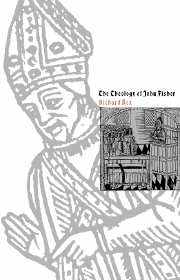Book contents
- Frontmatter
- Contents
- Acknowledgments
- List of abbreviations
- Introduction
- 1 Humanism and scholasticism in late fifteenth – century Cambridge
- 2 The preaching bishop
- 3 Fisher and the Christian humanists, 1500–1520
- 4 The Magdalene controversy
- 5 Fisher and the Catholic campaign against Luther
- 6 Authority
- 7 Faith, grace and justification
- 8 The eucharist
- 9 The inspiration and translation of scripture
- 10 The controversy over Henry VIII's first marriage
- 11 Conclusion
- Appendix John Fisher's library
- Notes
- Bibliography
- Index
- Frontmatter
- Contents
- Acknowledgments
- List of abbreviations
- Introduction
- 1 Humanism and scholasticism in late fifteenth – century Cambridge
- 2 The preaching bishop
- 3 Fisher and the Christian humanists, 1500–1520
- 4 The Magdalene controversy
- 5 Fisher and the Catholic campaign against Luther
- 6 Authority
- 7 Faith, grace and justification
- 8 The eucharist
- 9 The inspiration and translation of scripture
- 10 The controversy over Henry VIII's first marriage
- 11 Conclusion
- Appendix John Fisher's library
- Notes
- Bibliography
- Index
Summary
Of all the theological divisions of the Reformation, the easiest to describe is that over authority in Christian life and belief. Unlike the debates over justification and the eucharist, it raises no profound problems of metaphysics. It can be summarised briefly. In settling controversies about faith and morals, Catholics were accustomed to appeal not only to scripture, but also to tradition as embodied in the writings and decrees of the fathers, doctors, bishops and councils of the Church. When a definitive statement was required, it could be provided either by the pope or by a general council of the Church. But this apparatus of tradition and hierarchy was regarded by the Reformers as the substitution of human for divine authority. Led by Luther, they insisted that scripture alone, in its literal sense, could be taken as sufficient authority in matters of faith and morals – although the testimony of the fathers remained a powerful polemical weapon in those areas in which it could be plausibly invoked. This simple proposition has remained, despite its arguable epistemological naivety, one of the most beguiling features of Reformed religion ever since. Its attraction has been so great that in the countries where the Reformed religion struck root it has come to seem, even to non-Christians, the self-evident method for ascertaining the content of Christian doctrine. In those countries this has led to a failure to appreciate the theological position of those who argued against the Reformers.
- Type
- Chapter
- Information
- The Theology of John Fisher , pp. 93 - 109Publisher: Cambridge University PressPrint publication year: 1991



